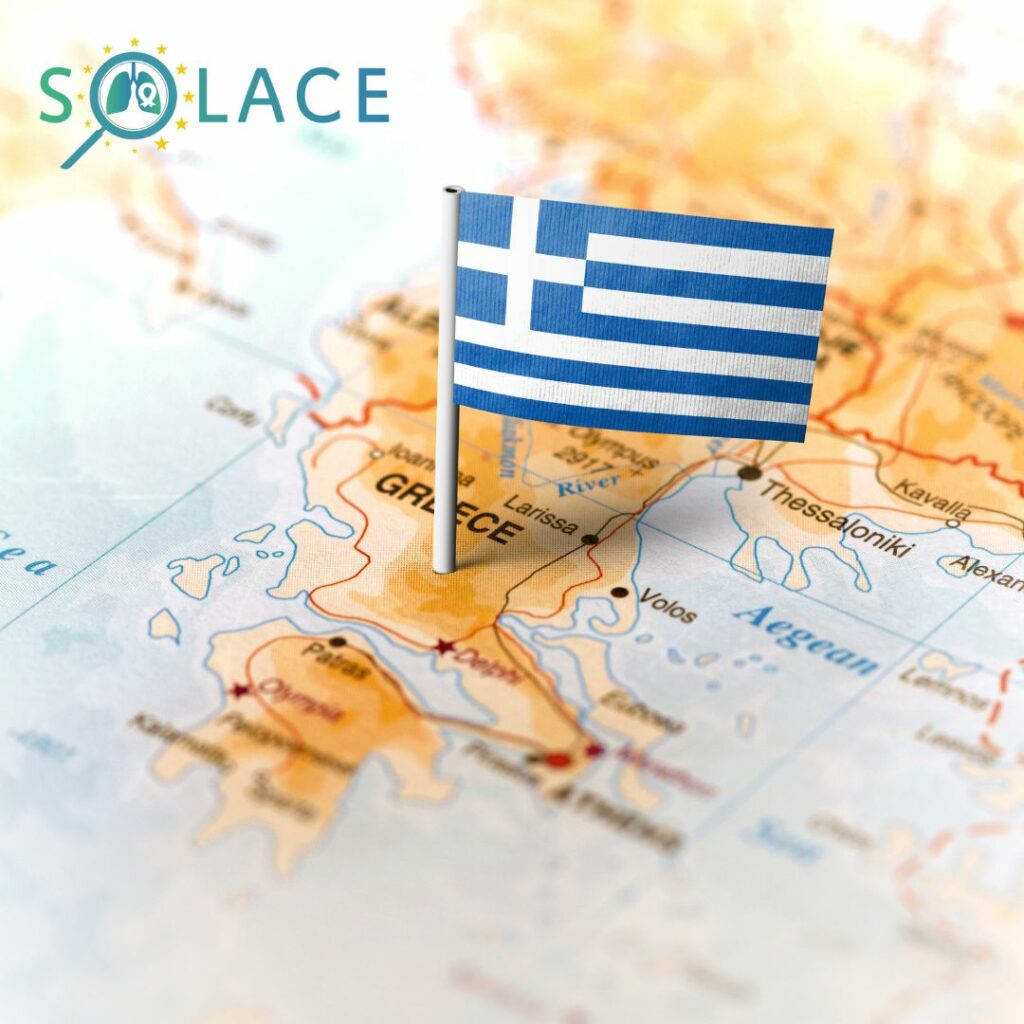
SOLACE in Greece
In Greece, one-third of individuals over 15 years of age are smokers, with most starting to smoke as teenagers. As physicians, the Greek SOLACE team is acutely aware of the integral role that preventive measures, such as anti-smoking campaigns and healthy lifestyles as well as early detection through screening play in protecting and promoting health on an individual and community level.
The Greek SOLACE team are excited to work within SOLACE in Athens and Heraklion, Crete, as the first large-scale, targeted-population screening project to date nationally.
Within WP4 and WP5, the Greek team are targeting high-risk women or people in hard-to-reach groups, including the financially vulnerable and geographically remote, working hard to raise awareness and deliver a strong message about the role of lung cancer screening.
Recruitment has been through a wide range of methods, including: meeting face-to-face and online with social group representatives and health mediators, engaging with people at their workplaces and community centers, taking outpatient clinic referrals through colleagues and coupling this with running cancer screening programs.
The first participant enrolled in May 2024, and since then, 120 individuals have come forward and 67 low-dose CT scans (LDCTs) have already been carried out. The participants are three-quarters female, with 1 in 4 having started smoking before the age of 16 years and one-third with an obstructive pattern on spirometry. So far, there have been two positive LDCTs (one participant subsequently diagnosed with NSCLC via EBUS bronchoscopy), and ten as indeterminate. Coronary artery calcifications, emphysema and osteoporosis have been the most frequent incidental findings.
The Greek SOLACE team are determined to address practical hurdles to people receiving preventive care, such as inadequate transportation and difficult access to health services (transport to screening has been organised at no cost to the participants), time-consuming appointments (a one-stop clinic has been set up, ensuring the first appointment as well as the LDCT happening on the same day, within 1.5 hrs). The team work closely with social workers to ensure individuals who need further investigation of incidental findings or follow-up imaging are adequately supported to receive the care they need.
As SOLACE progresses, the Greek team are committed to using the project as a welcome opportunity to improve health literacy and promote uptake, tailoring the methods based on the experiences so far with a view to promoting screening as widely as possible.

